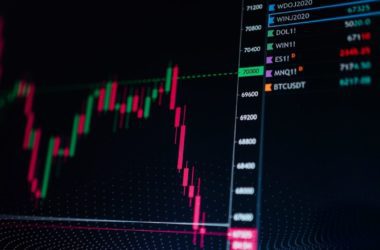Table of Contents Show
Listen to the Article by Playing the Audio.
Trading regulations are a crucial aspect of financial markets. Regulations are put in place to ensure fair, orderly, and efficient markets, protect investors, and promote market stability. The rules and regulations governing trading activities are enforced by regulatory bodies such as the Securities and Exchange Commission (SEC) and the Financial Industry Regulatory Authority (FINRA).
Trading regulations cover a wide range of financial instruments, including securities and commodities. These regulations are designed to ensure that market participants comply with certain standards and practices, such as reporting requirements, trading restrictions, and disclosure obligations. In addition to domestic regulations, international trading regulations also play a significant role in the global financial system.
Key Takeaways:
- Trading regulations are essential for ensuring fair, orderly, and efficient markets, protecting investors, and promoting market stability.
- Regulatory bodies such as the SEC and FINRA enforce trading regulations for securities and commodities.
- International trading regulations are also important in the global financial system.
Overview of Trading Regulations
What are Trading Regulations?
Trading regulations are rules and guidelines that govern the buying and selling of financial instruments in the marketplace. These regulations are designed to ensure that transactions are conducted in a fair, orderly, and efficient manner, and that investors are protected from fraudulent activities. Trading regulations cover a wide range of activities, including the registration of brokers and dealers, the disclosure of information to investors, and the prevention of insider trading.
Why are Trading Regulations Important?
Trading regulations are important for several reasons. First, they help to promote transparency in the marketplace, which makes it easier for investors to make informed decisions about their investments. Second, they help to prevent fraud and other illegal activities, which can damage the integrity of the financial system. Finally, trading regulations help to ensure that the market operates in a fair and orderly manner, which promotes confidence in the system and encourages investment.
Key Players in Trading Regulations
There are several key players involved in the regulation of trading activities. These include:
- The Securities and Exchange Commission (SEC): The SEC is a federal agency that is responsible for enforcing securities laws and regulations. The SEC is responsible for overseeing the registration of brokers and dealers, as well as the disclosure of information to investors.
- The Financial Industry Regulatory Authority (FINRA): FINRA is a self-regulatory organization that is responsible for regulating the activities of brokers and dealers. FINRA is responsible for enforcing rules related to sales practices, advertising, and other aspects of the securities business.
- Businesses and Broker-Dealers: Businesses and broker-dealers are responsible for complying with trading regulations. This includes registering with the SEC and FINRA, providing accurate and timely information to investors, and adhering to rules related to sales practices and advertising.
- Investors: Investors have a responsibility to understand and comply with trading regulations. This includes conducting due diligence on potential investments, reporting any suspicious activities to the appropriate authorities, and adhering to rules related to insider trading and other illegal activities.
- Regulatory Bodies: Regulatory bodies are responsible for enforcing trading regulations and ensuring that businesses and individuals comply with the rules. These bodies may include government agencies, self-regulatory organizations, and other entities.
In summary, trading regulations are an important aspect of the financial system. They help to promote transparency, prevent fraud, and ensure that the market operates in a fair and orderly manner. By understanding the key players and regulations involved in trading, investors can make informed decisions and protect themselves from fraudulent activities.
Regulatory Bodies
Regulatory bodies are organizations that are responsible for overseeing and enforcing regulations related to trading. These regulatory bodies are important in ensuring that trading is conducted in a fair and transparent manner, and that investors are protected from fraudulent activities. The following are some of the most important regulatory bodies in the United States:
Securities and Exchange Commission (SEC)
The Securities and Exchange Commission (SEC) is a federal agency that is responsible for enforcing federal securities laws and regulating the securities industry. The SEC oversees the activities of broker-dealers, investment advisers, and other market participants. The SEC also provides guidance to issuers, investors, and other market participants on compliance with securities laws.
Financial Industry Regulatory Authority (FINRA)
The Financial Industry Regulatory Authority (FINRA) is a self-regulatory organization that is responsible for regulating the activities of broker-dealers and other market participants. FINRA is authorized by the SEC to enforce federal securities laws and to establish rules and regulations for the securities industry. FINRA also provides guidance to broker-dealers and other market participants on compliance with securities laws.
Commodity Futures Trading Commission (CFTC)
The Commodity Futures Trading Commission (CFTC) is a federal agency that is responsible for regulating the futures and options markets. The CFTC oversees the activities of futures exchanges, futures commission merchants, and other market participants. The CFTC also provides guidance to market participants on compliance with futures and options regulations.
National Securities Exchange (NSE)
The National Securities Exchange (NSE) is a self-regulatory organization that is responsible for regulating the activities of securities exchanges. The NSE is authorized by the SEC to enforce federal securities laws and to establish rules and regulations for securities exchanges. The NSE also provides guidance to securities exchanges on compliance with securities laws.
Securities Investor Protection Corporation (SIPC)
The Securities Investor Protection Corporation (SIPC) is a nonprofit organization that is responsible for protecting investors from the loss of cash and securities held by broker-dealers that have become insolvent. SIPC provides up to $500,000 in protection for each customer account, including up to $250,000 in cash.
In conclusion, regulatory bodies play a critical role in ensuring that trading is conducted in a fair and transparent manner, and that investors are protected from fraudulent activities. The SEC, FINRA, CFTC, NSE, and SIPC are some of the most important regulatory bodies in the United States, and they provide guidance, oversight, and enforcement of regulations related to trading.
Trading Regulations for Securities
When it comes to trading securities, there are several regulations in place to ensure that the market operates fairly and efficiently. In this section, we will cover the different types of securities regulations, insider trading, margin requirements, and portfolio margining.
Types of Securities Regulations
The Securities and Exchange Commission (SEC) is responsible for regulating the securities market in the United States. The SEC has several rules and regulations in place to protect investors and ensure that the market operates fairly.
One of the most important regulations is the Securities Act of 1933, which requires companies to register their securities with the SEC before they can be sold to the public. This act also requires companies to provide investors with accurate and complete information about their securities.
Other important regulations include the Securities Exchange Act of 1934, which regulates the trading of securities, and the Investment Company Act of 1940, which regulates investment companies.
Insider Trading
Insider trading is the act of buying or selling securities based on non-public information. This is illegal and can result in fines and even jail time.
To prevent insider trading, the SEC requires insiders to report their trades and prohibits them from trading on non-public information. The SEC also monitors trading activity to detect insider trading.
Margin Requirements
Margin trading is when an investor borrows money to buy securities. Margin requirements are the amount of money that an investor must deposit with their broker to cover any potential losses.
The Federal Reserve Board sets margin requirements for securities. These requirements vary depending on the type of security and the amount of leverage used.
Portfolio Margining
Portfolio margining is a method of calculating margin requirements based on the overall risk of a portfolio. This method takes into account the risk of each individual position in the portfolio and calculates the margin requirement accordingly.
Portfolio margining is used by some brokers to offer lower margin requirements for certain types of accounts. However, it is important to note that portfolio margining can also increase the risk of a portfolio.
In conclusion, trading regulations for securities are in place to protect investors and ensure that the market operates fairly. These regulations cover a wide range of topics, including insider trading, margin requirements, and portfolio margining. By following these regulations, investors can trade with confidence and minimize their risk.
Trading Regulations for Commodities
Overview of Commodity Trading Regulations
Commodity trading is regulated by several government agencies to ensure fair and transparent trading practices. The Commodity Futures Trading Commission (CFTC) is the primary regulatory body for commodity trading in the United States. The CFTC oversees the trading of futures, options, and swaps contracts on commodities, including agricultural products, energy, and metals.
Regulatory Bodies for Commodity Trading
In addition to the CFTC, other regulatory bodies oversee commodity trading. For example, the Securities and Exchange Commission (SEC) regulates security-based swaps, which are contracts that are based on the price of a security. The SEC also regulates single securities, which are securities that are not part of a broader index.
Trading Plan and Methodology
Commodity traders must have a trading plan and methodology that outlines their trading strategy. This plan should include risk management strategies, such as stop-loss orders, to limit potential losses. Traders should also have a clear understanding of the market they are trading in, including supply and demand factors, and technical analysis of price trends.
Policies and Procedures for Commodity Trading
Commodity traders must adhere to strict policies and procedures to ensure compliance with regulatory requirements. These policies and procedures should cover areas such as record-keeping, customer protection, and anti-fraud measures. Traders should also have a code of ethics that outlines their commitment to fair and transparent trading practices.
In conclusion, commodity trading is subject to strict regulations to ensure fair and transparent trading practices. Traders must have a clear understanding of the regulatory requirements and adhere to strict policies and procedures to ensure compliance. By following these guidelines, traders can help maintain the integrity of the commodity markets and protect the interests of all market participants.
International Trading Regulations
Overview of International Trading Regulations
International trading regulations are rules and agreements that govern the flow of goods and services across borders. These regulations aim to ensure fair competition, protect consumers, and promote economic growth. The rules and agreements that govern international trade are complex and vary from country to country. Some countries are more open to international trade than others, and some have more stringent regulations than others.
Free Trade Agreements
Free trade agreements (FTAs) are agreements between two or more countries that eliminate or reduce tariffs and other trade barriers between them. FTAs aim to promote trade and investment by reducing the cost of doing business between countries. The United States has signed several FTAs with other countries, including the North American Free Trade Agreement (NAFTA) and the United States-Mexico-Canada Agreement (USMCA).
Tariffs and Trade Barriers
Tariffs are taxes that countries impose on imported goods. Tariffs can make imported goods more expensive, which can make domestic goods more competitive. However, tariffs can also make it more difficult for businesses to compete in international markets. Some countries also impose non-tariff barriers, such as quotas and regulations, that can make it more difficult for businesses to export their goods and services.
Trading Regulations in Different Countries
Different countries have different regulations for importing and exporting goods and services. Some countries have more stringent regulations than others, which can make it more difficult for businesses to trade with them. It is important for businesses to understand the regulations in the countries they wish to trade with in order to avoid costly mistakes.
In conclusion, international trading regulations are complex and vary from country to country. Free trade agreements aim to promote trade and investment by reducing the cost of doing business between countries. Tariffs and other trade barriers can make it more difficult for businesses to compete in international markets. It is important for businesses to understand the regulations in the countries they wish to trade with in order to avoid costly mistakes.
Legal Responsibilities and Documentation
Trading regulations impose legal responsibilities on brokers and traders to ensure compliance with the law and protect investors. Documentation and record-keeping play a critical role in meeting these responsibilities and avoiding legal pitfalls. Intellectual property rights are also essential considerations for traders and brokers.
Legal Responsibilities of Brokers
Brokers must comply with a range of legal obligations, including those set forth by regulatory bodies like the Securities and Exchange Commission (SEC) and the Securities Investor Protection Corporation (SIPC). Brokers must also comply with proprietary trading regulations, which prohibit trading on behalf of the broker’s own account. OGC FINRA’s Office of General Counsel provides interpretative guidance on these and other legal requirements.
Documentation and Record-Keeping
Documentation and record-keeping are essential for brokers to meet their legal responsibilities. Brokers must maintain accurate records of all transactions, including trade confirmations, account statements, and other relevant documents. These records must be kept for a specified period, typically five years, and must be readily accessible to regulators and auditors.
Intellectual Property Rights
Intellectual property rights are critical considerations for traders and brokers. Traders must ensure that they have the necessary rights to trade securities, including any necessary licenses or permissions. Brokers must also ensure that they are not infringing on the intellectual property rights of others, such as by using proprietary trading algorithms without permission.
In conclusion, legal responsibilities and documentation are essential considerations for brokers and traders. By complying with legal requirements and maintaining accurate records, brokers can protect investors and avoid legal pitfalls. Intellectual property rights are also critical considerations for traders and brokers, who must ensure that they have the necessary rights to trade securities and are not infringing on the rights of others.
Frequently Asked Questions
What are the requirements for day trading?
Day trading regulations mandate that traders must have a minimum of $25,000 in their account to engage in day trading activities. This is to ensure that traders have enough funds to cover any losses that may occur during the day. Additionally, day traders must adhere to specific rules, such as not exceeding three trades in a five-day period if their account balance is below $25,000.
How are international trade laws enforced?
International trade laws are enforced by various organizations, including the World Trade Organization (WTO) and the International Trade Commission (ITC). These organizations monitor trade practices and investigate complaints of unfair trade practices, such as dumping and subsidies.
What is the role of the SEC in trading regulations?
The Securities and Exchange Commission (SEC) is responsible for enforcing regulations that govern the trading of securities, including stocks, bonds, and mutual funds. The SEC’s primary role is to protect investors and ensure that markets are fair and transparent. The SEC also regulates broker-dealers, investment advisors, and other market participants.
What are the penalties for violating trade regulations?
Penalties for violating trade regulations can be severe, ranging from fines and penalties to criminal charges. In some cases, individuals or companies may be banned from trading or doing business in certain markets. Violating trade regulations can also damage a company’s reputation and lead to a loss of business.
How do trade regulations impact businesses?
Trade regulations can have a significant impact on businesses, particularly those that engage in international trade. Regulations can affect the cost of goods, the availability of products, and the competitiveness of companies. Businesses that violate trade regulations may face penalties and legal action, which can be costly and damaging to their reputation.
Who enforces foreign trade regulations?
Foreign trade regulations are enforced by various agencies, including the Department of Commerce, the Department of State, and the Department of Homeland Security. These agencies work together to ensure that U.S. businesses comply with foreign trade regulations and that foreign companies comply with U.S. trade regulations.




